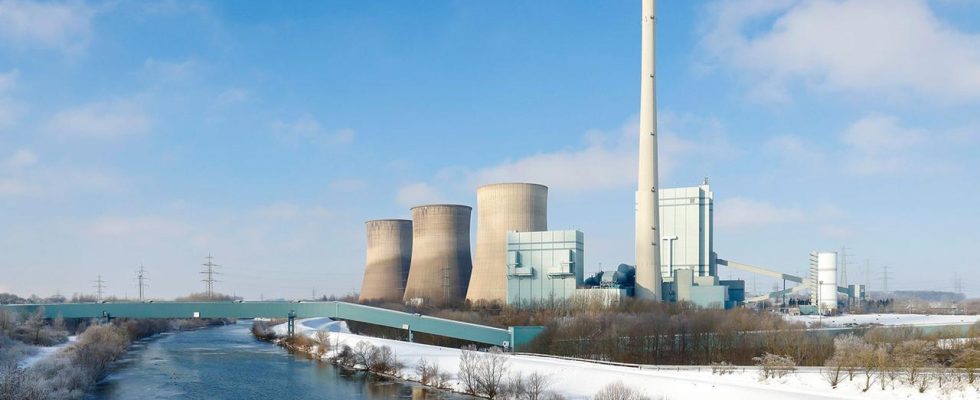Germany should get out of coal by 2030. This requires new gas power plants and government funding. A power plant strategy should have been in place long ago – but the budget crisis is making planning difficult.
The framework for the power plant strategy is in place, the Federal Ministry of Economics rejoiced on August 1st of this year. And Robert Habeck also gave concrete figures for what amounts of energy he wanted to tender funding for and by when: 8.8 gigawatts of pure hydrogen power plants, a further 15 GW of hydrogen power plants that can temporarily be operated with natural gas – and ten of these 15 GW by 2026.
Gas power plants should Coal-fired power plants replace
The power plants are needed in order to be able to meet electricity demand from 2030 onwards without using coal-fired power, if possible. By then, 80 percent of German electricity consumption should be covered by renewable sources, and when the sun doesn’t shine and the wind doesn’t blow, gas-fired power plants should step in.
The coal phase-out in 2030 depends on the power plant strategy – and that is still a long time coming. Even though there has been a “frame” since August 1st, the image that it is supposed to surround is still a blank sheet of paper.
In November, State Secretary for Economic Affairs Philipp Nimmermann announced the finished strategy by the end of the year at a conference of the German Energy Agency (Dena). But there is no longer any talk of this: the Federal Ministry of Economics does not provide an answer ARD-Inquiry as to when the power plant strategy will be published.
No Power plant strategy because of the KTF ruling?
One reason for this is probably the Federal Constitutional Court’s ruling on the federal budget and the Climate and Transformation Fund (KTF), as a result of which almost everything that costs money is at risk – including state funding for gas power plants.
However, the Ministry of Economic Affairs is keen to state that work on the strategy has “not been paused”: the strategy will “of course continue to be pursued at full speed”. However, the relevant questions at the KTF would have to be clarified at the same time. That probably means: Minister and Green Party politician Habeck is working on a more cost-effective power plant strategy.
Habeck’s coalition partner FDP shows understanding. Parliamentary group vice-president Lukas Köhler said this ARD capital studio, the minister’s previous proposals for promoting the construction and operation of power plants would have cost a lot of money. “In view of the budget situation, it is therefore logical not to pursue the power plant strategy in this form any further.”
CDU and SPD: Strategy should have been finished long ago
Deputy CDU leader Andreas Jung sees this more critically. In his opinion, the power plant strategy should have come a long time ago – “even before the budget verdict from Karlsruhe.”
A point of criticism that Economics Minister Habeck also faces in a similar way from the coalition partner SPD: their energy politician Markus Hümmer said this ARD capital studioIn order to actually have enough electricity available in 2030, the power plant strategy would have to be in place “actually since yesterday”.
Future gas: “Five past twelve”
The gas industry sees it similarly. From their perspective, “it’s already five past twelve,” says Timm Kehler, board member of the Zukunft Gas interest group. Shutting down coal-fired power plants will hardly be feasible by 2030. According to Kehler, the construction of the new, hydrogen-capable gas power plants required for this must be expected to take five to six years.
The association of municipal companies is also putting pressure on it. Last week, Managing Director Ingbert Liebing urgently warned Economics Minister Habeck of further delays in the power plant strategy. He called for planning and investment security: “Without a power plant strategy, the risk for investors is too high and necessary investments will initially not be made.”
So there is broad consensus that time is of the essence. FDP parliamentary group vice-president Köhler expects “that the Ministry of Economics will soon present a new concept,” and SPD energy politician Hümmer wants to stop “losing so much time in coordination between Brussels and Berlin.”

